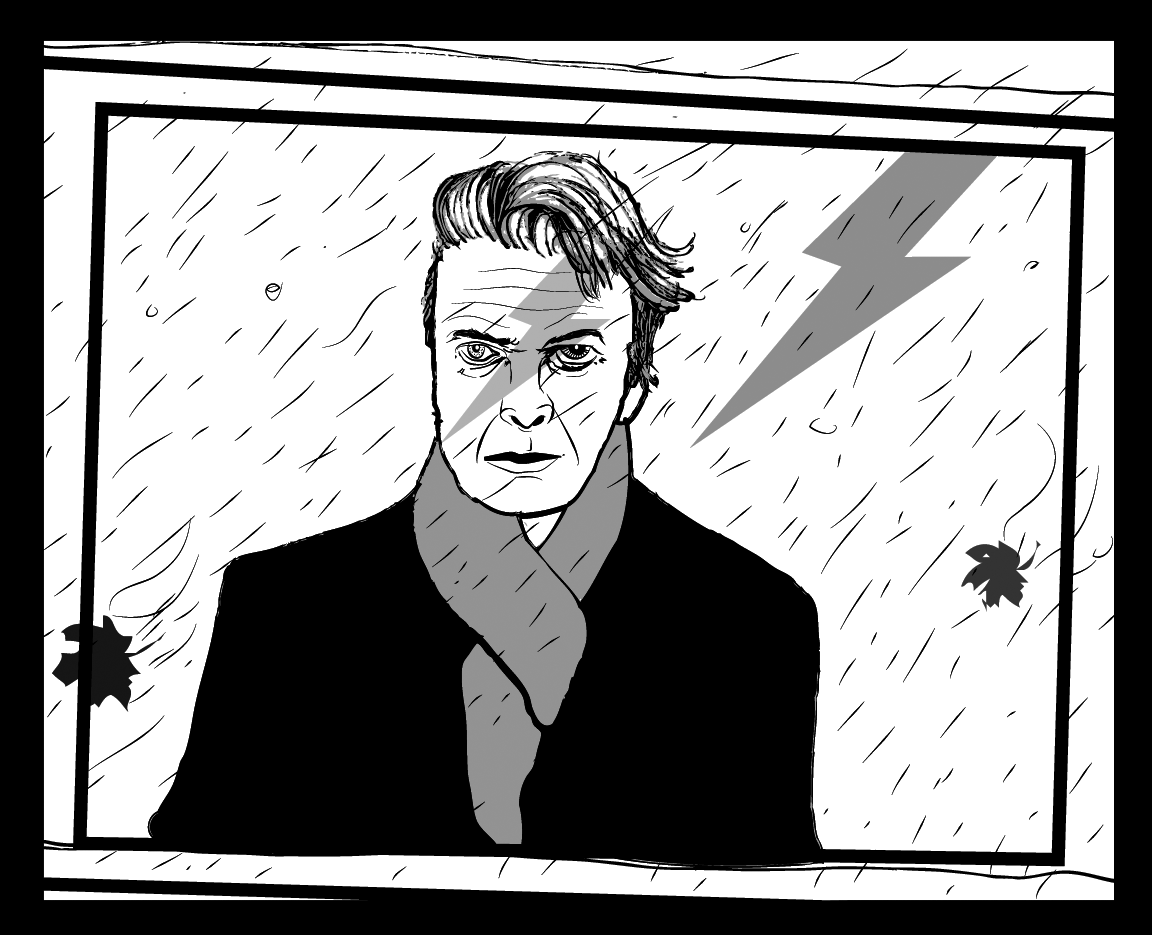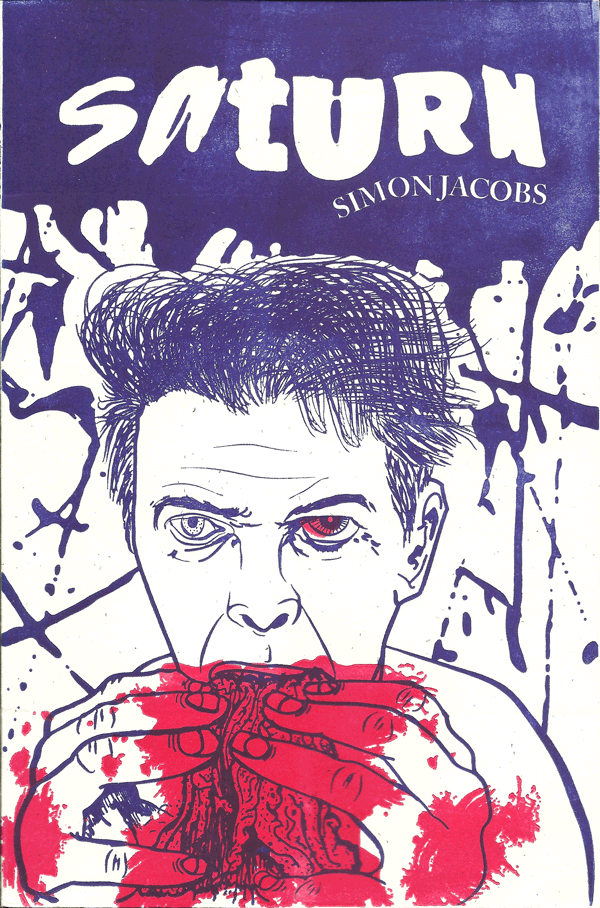DAVID BOWIE WATCHES THE STORM THROUGH THE WINDOW OF HIS SIZABLE MANHATTAN APARTMENT
In the gale outside, he sees apparitions of the past, faces he’s synthesized over the years: the flaming red Ziggy Stardust mullet, the fascist-chic of the Thin White Duke, images from other eras he spent functioning in myth; now, he finds himself slipping inexorably, apocalyptically back into it, for the first time in a decade.
He has just finished recording.
David Bowie thinks back to one of his most infectious melodies, 1972’s “Starman” (which foretold a different landing), and, in the chorus, the octaval leap he stole from Judy Garland. They both sang about skies, although his is a different cyclone, the kind with names of women born in the first half of the last century—Dorothy, Sandy—names that would seem petite if not for the wake left by the crook of their final letter.
His wife, Somali supermodel Iman (for whom he has written songs, on other albums), born in another decade entirely, appears just behind him, her face reflected in the glass against his own and the rain, her past slotting in among the others.

In the fog accumulated on the window, Iman writes her name in Arabic. As her finger drags through the perspiration—right to left, against history, against Western sense—a lightning flash illuminates the studio, and superimposed on the glass David Bowie sees behind him a host of faces—his own, his self-portraits, as they have been all along—and suddenly in the glass, her finger curves around its final consonant and he can no longer tell what’s past or present.
She touches his shoulder. Water swelling in the street below, they retreat to the bedroom—his family, or what he’s localized of them: his wife, Iman, and twelve-year-old daughter, Lexi. David Bowie gathers them together. He thinks of his wife’s name trickling down the window. Inside, he names a private storm.
Later, when the city is finally put to sea, David Bowie wonders if the swiftness of its sinking is due to the combined weight of so many icons buried in a single tract of land. Or, their opposites: from the bodies hanging in the sky, spiraling and pulling back. Once again, he is thinking about planets.
